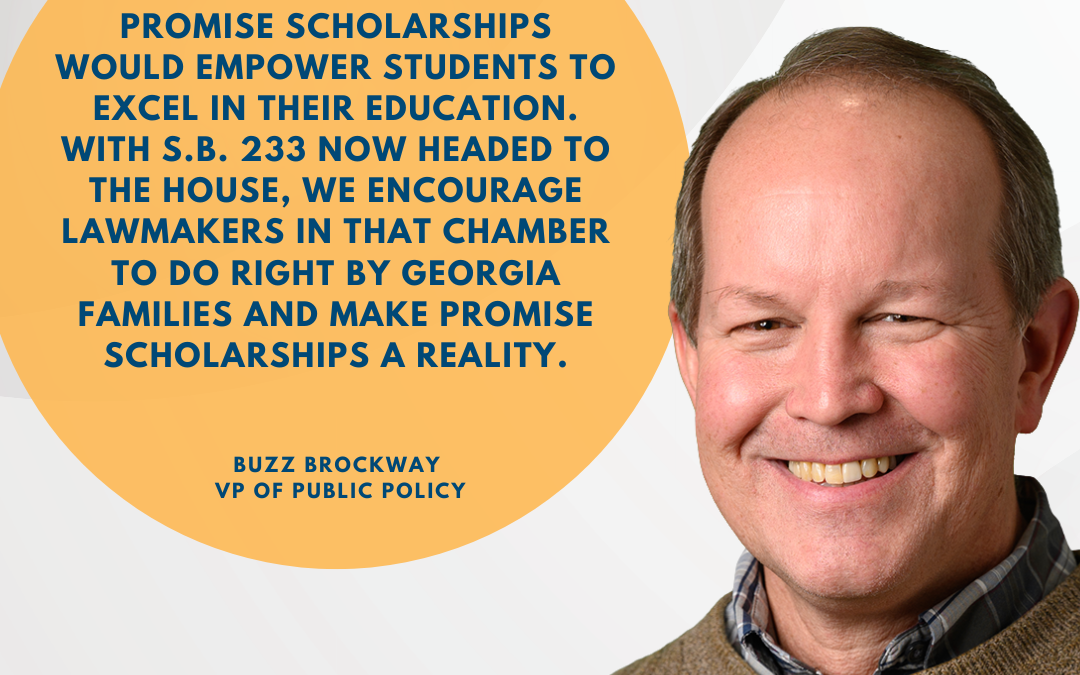Senate Bill 233, The Georgia Promise Scholarship Act, passed the Senate Education Committee today in a 6-5 vote. Funded by the state in the amount of $6,000 per student for each school year, Promise Scholarships would allow families to find the right fit for their students’ education. Scholarships could be used on any approved education expense, such as private school tuition, tutoring, homeschool curriculum, virtual classes, college classes, therapies (for kids with special needs), technology, and more.
Georgia Center for Opportunity’s (GCO) take: “Too many times, education access in Georgia is limited to families of means, but every child deserves access to a quality education. Promise Scholarships would help create this opportunity,” said Buzz Brockway, vice president of public policy for GCO. “Public education is the right choice for most families, but for a growing minority of students, an alternative is what’s best. We can, and should, support all options.”
March 2023 Update on SB 233, The Georgia Promise Scholarship Act:
- Georgia Senators passed Senate Bill 233 after a floor vote on February 26, 2023. The bill must pass the House of Representatives before the end of March 2023 to receive the Governor’s signature and become law.
- The bill was amended by the Senate to limit eligibility to students in the bottom-performing quartile of public schools (F-graded schools and some D-graded schools), based on the Georgia Department of Education’s evaluation.
- Funded by the state in the amount of $6,000 per student for each school year, Promise Scholarships would allow parents of students in failing schools to seek out a better education option for their kids.
- While the most effective education savings account programs are universal (open to every public school student), the Promise Scholarship Act is an important and positive step toward shaping an education system that gives every Georgia kid better access to quality education.
Have more questions about SB 233? Check out our full explainer on The Georgia Promise Scholarship Act.





